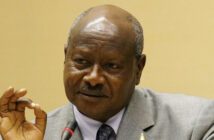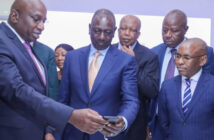The Monetary Policy Committee (MPC) yesterday retained headline interest rate at 11 per cent while holding bank reserve requirements at 20 per cent. It retained an asymmetric corridor of plus two per cent and minus seven per cent around the Monetary Policy Rate (MPR).
These were the high points reached at the MPC meeting yesterday presided over by the Central Bank of Nigeria Governor, Godwin Emefiele in Abuja. The CBN Governor addressing journalists said the committee, in consideration of the headwinds in the domestic economy and the uncertainties in the global environment decided by a unanimous vote to retain the monetary policy rate, cash reserve requirement (CRR), liquidity ratio (LR) and the asymmetric corridor of +2/-7 around the MPR.
He said the MPC voted to retain the CRR at 20.0 per cent; MPR at 11.0 per cent; liquidity ratio at 30 per cent and retained the asymmetric corridor at +200 basis points and -700 basis points.
In arriving at the decision, Emefiele said the committee observed that the last episode of low oil prices in 2005 lasted for a maximum of eight months, noting, however, that the current episode of lower oil prices was projected to last longer.
Consequently, the CBN governor said: “It is imperative to brace for a longer period of low government revenues from oil sources, which would necessitate hard and uncomfortable choices as the economy transits to more sustainable sources of revenue, consistent with the economic realities and strategic objectives of the country. In the circumstance, certain trade-offs must be envisaged and duly accommodated.”
He continued: “In view of the foregoing, the imperative for consistently sound and coordinated macroeconomic policy has become inevitable. In the medium term within which monetary policy is cast, the need to allow policy to produce the desired outcomes becomes a key consideration in the policy mix. Consequently, the bank is fine-tuning the framework for foreign exchange management with a view to ensuring a more effective and liquid foreign exchange market, taking into account Nigeria’s strategic development priorities; with the policies being designed within an environment of regularly ensuring consistency with monetary and fiscal policies.”
He said the MPC also stressed the necessity of coordination between monetary and fiscal policies as a prerequisite for resolving the nation’s economic problems, particularly, steering the economy away from oil dependency
Answering questions on the current level of the nation’s foreign exchange reserves, Emefiele said it stood at $28billion, stressing also that the CBN would not continue to accommodate the needs of the bureau de change operators in providing foreign exchange.
The CBN governor, while debunking insinuations of an imminent devaluation of the naira, however said: “We are already working on different scenarios and when we have them we will thoroughly examine them and move on from there.
“We will continue to discuss at the management and MPC level, to share our thoughts with various authorities with a view to harmonising our position so that Nigerian are not distracted and we are able to run our economy.
“So far, we have witnessed the drop of crude oil prices in the last 14 months and there is no light at the end of the tunnel yet . We shall continue to be alive to our responsibilities to ensure that we work together to provide for all the needs of Nigerians.”



